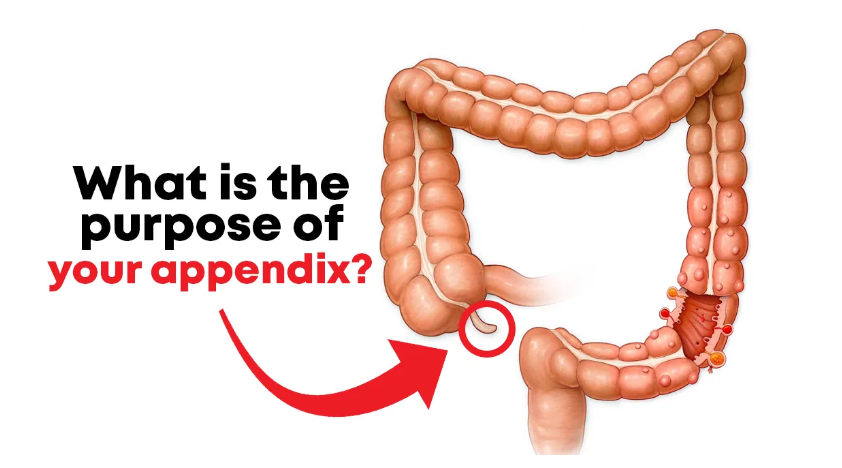
Welcome to Lahore Oncoplastic Breast Services. I’m Dr. Hammad Raza Sheikh, and today we’re going to explore a topic that might seem a bit out of left field for a breast surgeon: the appendix. While my primary focus is on breast health, as a general surgeon, I also have extensive experience in appendix-related procedures. Let’s dive into this often misunderstood organ and its importance in our overall health.
The appendix is a small, finger-shaped pouch connected to the large intestine. For years, it was considered a vestigial organ – a leftover from our evolutionary past with no real function. However, recent research has shown that the appendix may play important roles in our immune system and gut health.
While the appendix isn’t essential for survival, its removal can have subtle impacts on our health that we’re only beginning to understand.
The field of appendix surgery has seen significant advancements in recent years, many of which are now available to our patients in Pakistan:
At Lahore Oncoplastic Breast Services, we’re committed to offering the most advanced, appropriate treatments for our patients.
While comprehensive national data on appendix surgery in Pakistan is limited, our clinic data and regional studies provide some insights:
– Appendicitis is one of the most common surgical emergencies in Pakistan, with an estimated incidence of 11 per 10,000 population per year.
– The average age of patients undergoing appendectomy at our clinic is 28 years.
– Laparoscopic appendectomy has increased by 40% in urban centers like Lahore over the past five years.
– Success rates for laparoscopic appendectomy at our clinic exceed 98%.
A study conducted across major hospitals in Pakistan found that patients who underwent laparoscopic appendectomy had a 30% shorter hospital stay compared to those who had open surgery.
Traditional open appendectomy involves a larger incision and longer recovery time. While effective, this method can lead to more post-operative pain and a higher risk of wound complications.
A comparative study published in the Journal of Pakistan Medical Association found that patients who underwent laparoscopic appendectomy reported 40% less post-operative pain and returned to work 5 days earlier on average compared to those who had open surgery.
These advancements offer numerous benefits for our Pakistani patients:
One of our patients, Ahmed (name changed), shared: “I was worried about missing work for a long time, but after laparoscopic surgery with Dr. Sheikh, I was back to my office in just a week. The small scars are barely noticeable!”
It’s natural to have questions about appendix surgery. Let’s address some common concerns:
Not always. In some cases of uncomplicated appendicitis, antibiotics alone may be sufficient. We assess each case individually.
Most patients can return to their normal diet within a few days after surgery.
No, once the appendix is removed, you cannot get appendicitis again.
While the appendix isn’t essential for survival, some studies suggest it may play a role in maintaining gut health. However, most people live normal, healthy lives without an appendix.
With laparoscopic surgery, many patients go home the same day or after one night in the hospital.
As a Consultant Surgeon with over 15 years of experience, I’ve performed numerous appendectomies using both traditional and advanced techniques. My approach combines surgical expertise with a commitment to minimally invasive methods whenever possible.
I’ve trained extensively in laparoscopic and robotic-assisted surgical techniques, allowing me to offer the most appropriate treatment for each patient’s unique situation.
Let me share a few stories from our patients (names changed for privacy):
Fatima, 32: “I was diagnosed with appendicitis while pregnant. Dr. Sheikh’s expertise in laparoscopic surgery allowed for a safe procedure with minimal risk to my baby. I recovered quickly and had a healthy delivery a few months later.”
Zain, 45: “As a business owner, I couldn’t afford a long recovery. The single-incision technique Dr. Sheikh used meant I was back to work in just five days. I’m amazed at how small the scar is!”
Amina, 19: “I was terrified of surgery, but Dr. Sheikh explained everything so clearly. The laparoscopic procedure was much easier than I expected, and I was back to my university classes in no time.”
Proper aftercare is crucial for optimal recovery. Here’s what you can expect:
In the Pakistani context, we understand the importance of family support in recovery. We provide clear instructions to family members on how to assist in the recovery process.
As we look to the future, I’m excited about the potential for further advancements in appendix surgery:
At Lahore Oncoplastic Breast Services, we’re committed to staying at the forefront of these advancements, ensuring that our Pakistani patients have access to the best possible care.
Laparoscopic appendectomy typically takes 30-60 minutes.
Most patients can return to light activities within a few days and normal activities within 1-2 weeks.
Most patients can return to their normal diet within a day or two after surgery.
While there’s no sure way to prevent appendicitis, a diet high in fiber may reduce the risk.
While laparoscopic surgery is safe for most patients, we assess each case individually to determine the best approach.